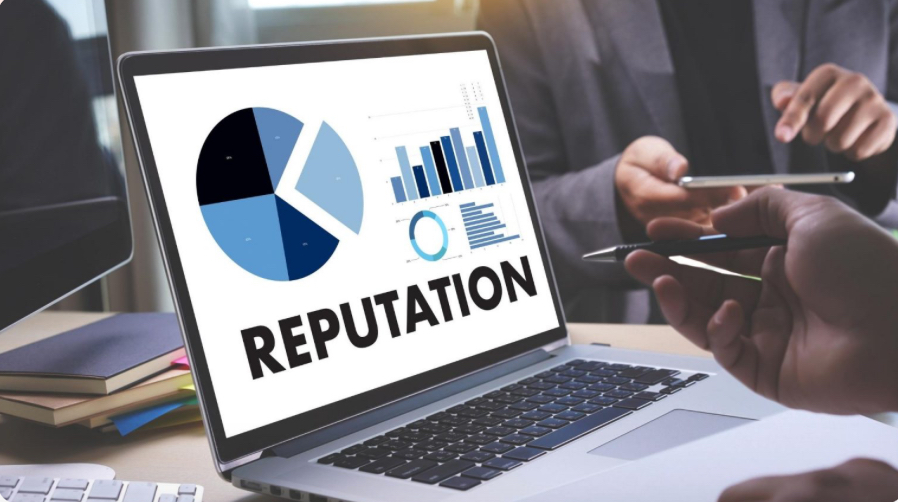Introduction
In today’s digital age, your online reputation can significantly impact your personal and professional life. Maintaining a positive online presence is crucial whether you’re a business owner, marketing professional, or job seeker. This guide will explore strategies for effectively managing your online reputation, including monitoring tools, handling negative reviews, and leveraging SEO. By following these tips, you’ll be better equipped to build and protect your digital reputation.
Table of Contents
1. Understanding Online Reputation Management
2. Monitoring Your Online Reputation
3. Tools for Managing Online Reputation
4. Improving Your Online Reputation
5. Dealing with Negative Reviews and Comments
6. Strategies for Maintaining a Positive Online Presence
7. Legal Considerations in Online Reputation Management
8. Conclusion
Understanding Online Reputation Management
What is Online Reputation Management?
Online reputation management (ORM) involves monitoring, influencing, and maintaining the digital perception of an individual or business. It’s about ensuring that your online presence accurately reflects your values and goals.
Why is ORM Important?
• Credibility: A strong online reputation builds trust with customers, employers, and the general public.
• Opportunities: Positive digital presence can lead to more career or business opportunities.
• Crisis Prevention: Proactive ORM helps mitigate the impact of potential reputation crises.
Monitoring Your Online Reputation
Importance of Monitoring
Regular monitoring allows you to stay informed about what is being said about you or your business online. This awareness is the first step in managing your digital reputation effectively.
Methods of Monitoring
• Google Alerts: Set up alerts for your name or business to receive notifications about new mentions.
• Social Media Listening Tools: Use tools like Hootsuite or Mention to track social media conversations.
• Review Sites: Regularly check review platforms like Yelp and Google Reviews.
Tools for Managing Online Reputation
Best ORM Tools
1. Google Alerts: Free tool for monitoring mentions across the web.
2. Hootsuite: Comprehensive social media management tool.
3. Reputation.com: Specialized service for managing business reputations.
4. SEMrush: Tool for monitoring SEO and online mentions.
Benefits of Using ORM Tools
• Efficiency: Automate the monitoring process.
• Insights: Gain valuable insights into public perception.
• Response: Quickly address negative content.
Improving Your Online Reputation
Strategies for Improvement
1. Content Creation: Publish high-quality, positive content that highlights your strengths.
2. Engage with Audience: Respond to comments and reviews professionally and promptly.
3. SEO Optimization: Use SEO strategies to ensure positive content ranks higher in search results.
Leveraging Personal Branding
• Consistency: Ensure your online profiles are consistent and professional.
• Authenticity: Be genuine in your interactions and content.
• Networking: Build relationships with influencers and thought leaders in your industry.
Dealing with Negative Reviews and Comments
Responding to Negative Feedback
1. Stay Calm: Keep responses professional and composed.
2. Acknowledge and Apologise: Recognize the issue and apologise if necessary.
3. Take it Offline: Offer to resolve the issue privately.
Removing Negative Content
• Contact the Platform: Request removal if content violates guidelines.
• Legal Action: Consider legal options if content is defamatory.
Strategies for Maintaining a Positive Online Presence
Proactive Reputation Management
• Regular Updates: Keep your profiles and websites updated with current information.
• Positive Content: Regularly publish blog posts, articles, and other content that reflects positively on you or your business.
• Engagement: Actively engage with your audience on social media.
Crisis Management
• Plan Ahead: Have a crisis management plan in place.
• Quick Response: Address issues swiftly to minimise damage.
• Transparency: Be open about mistakes and steps taken to rectify them.
Legal Considerations in Online Reputation Management
Understanding Legal Issues
• Defamation: Know the legal boundaries of defamation and how to address false information.
• Privacy Laws: Ensure compliance with privacy regulations.
• Intellectual Property: Protect your intellectual property rights online.
Conclusion
Effectively managing your online reputation is essential in today’s digital world. By monitoring your online presence, using the right tools, and implementing proactive strategies, you can build and maintain a positive reputation. Whether you’re dealing with negative reviews or enhancing your SEO, the key is to stay informed and engaged. Start managing your online reputation today to secure your personal and professional success.




Leave a Reply